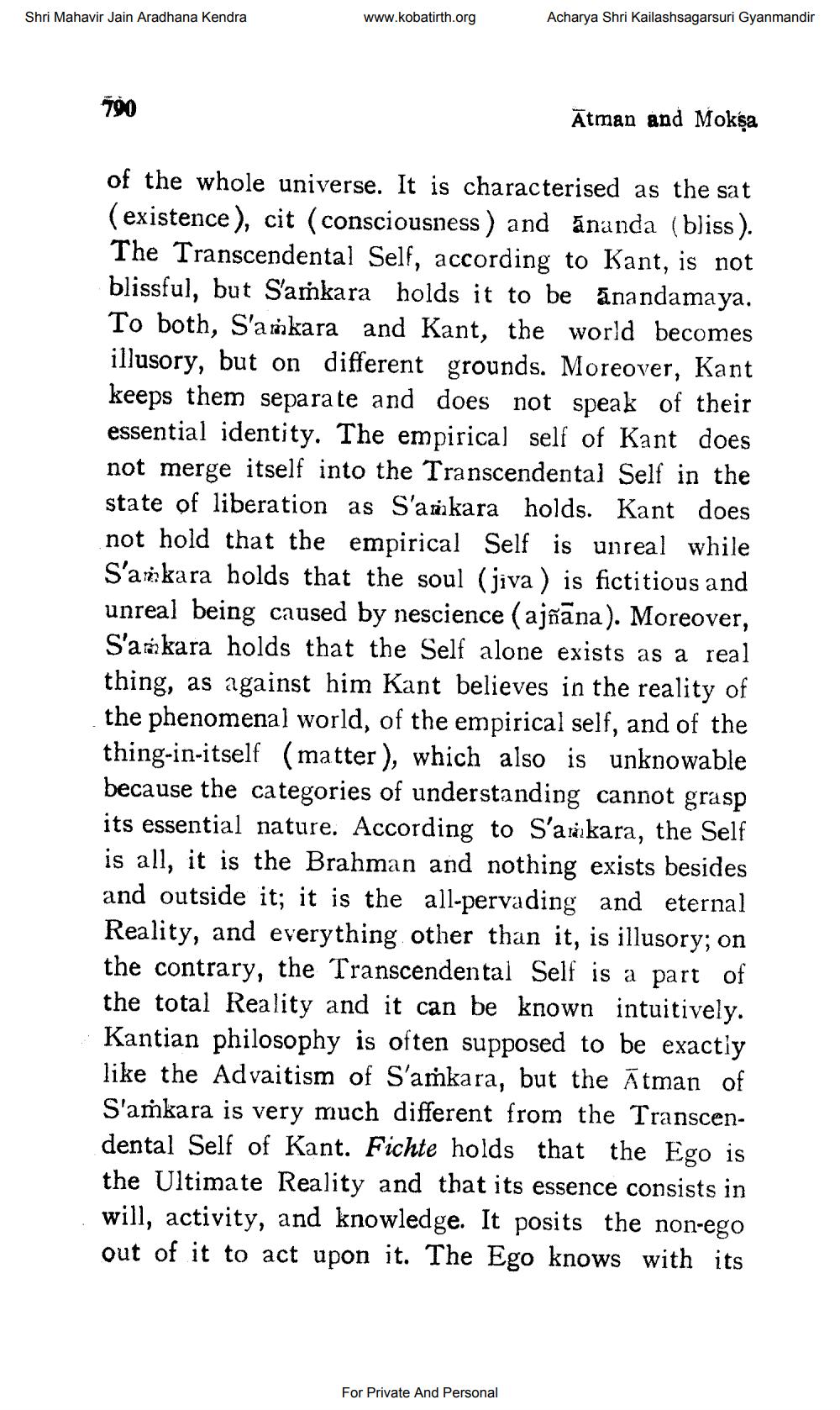________________
Shri Mahavir Jain Aradhana Kendra
790
www.kobatirth.org
Acharya Shri Kailashsagarsuri Gyanmandir
For Private And Personal
Atman and Mokṣa
of the whole universe. It is characterised as the sat (existence), cit (consciousness) and ananda (bliss). The Transcendental Self, according to Kant, is not blissful, but Samkara holds it to be anandamaya. To both, S'amkara and Kant, the world becomes illusory, but on different grounds. Moreover, Kant keeps them separate and does not speak of their essential identity. The empirical self of Kant does not merge itself into the Transcendental Self in the state of liberation as S'amkara holds. Kant does not hold that the empirical Self is unreal while S'amkara holds that the soul (jiva) is fictitious and unreal being caused by nescience (ajñāna). Moreover, S'amkara holds that the Self alone exists as a real thing, as against him Kant believes in the reality of the phenomenal world, of the empirical self, and of the thing-in-itself (matter), which also is unknowable because the categories of understanding cannot grasp its essential nature. According to S'amkara, the Self is all, it is the Brahman and nothing exists besides and outside it; it is the all-pervading and eternal Reality, and everything other than it, is illusory; on the contrary, the Transcendental Self is a part of the total Reality and it can be known intuitively. Kantian philosophy is often supposed to be exactly like the Advaitism of S'amkara, but the Atman of S'amkara is very much different from the Transcendental Self of Kant. Fichte holds that the Ego is the Ultimate Reality and that its essence consists in will, activity, and knowledge. It posits the non-ego out of it to act upon it. The Ego knows with its




